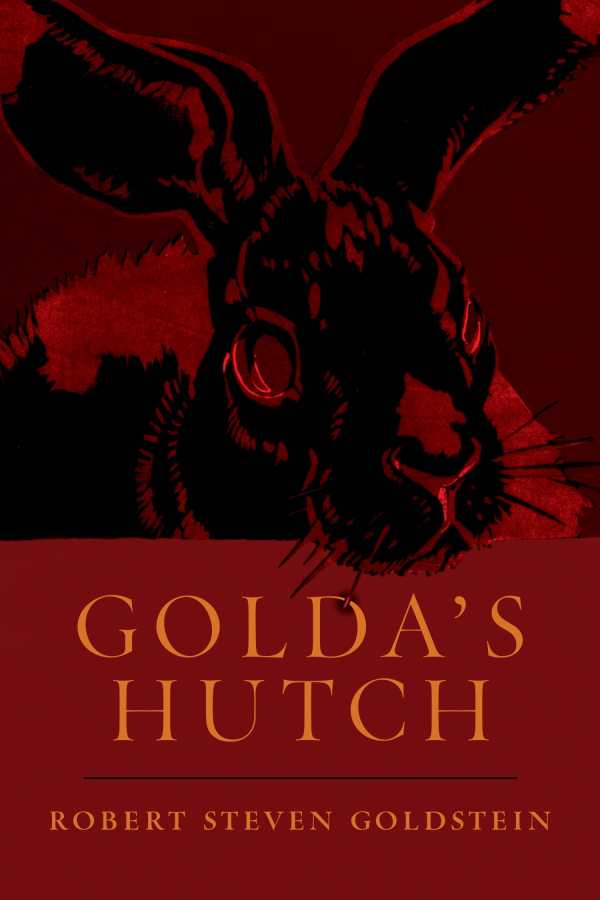Golda's Hutch
Misunderstood, atypical coworkers navigate their complicated relationships in the grim, funny novel Golda’s Hutch.
In Robert Steven Goldstein’s satirical novel Golda’s Hutch, a corporate leader’s private affairs lead to career complications.
Craig is a respected leader at a software development company. His wife Shoshana works as a dominatrix with his tacit support. His workplace concerns surrounding Y2K and staff reductions alternate with coverage of his office and home relationships.
Craig promotes Nigel, who conceals a “dodgy” past. Nigel is married to Justine, who is gifted in the mortuary arts. Byron, another employee, suspects that his coworkers are conspiring against him; with his wife’s guidance, he tries to unearth information about them for possible leverage. He also befriends Nigel because of their shared interest in racing.
Together, the cast of this grim character study represents a vivid cross-section of adults whose relationships are tangled, and who have to learn to be honest with one another if they have hope of attaining equilibrium. The chapter titles focus on their consumption, as with “Egg Salad” and “Bruschetta and Gimlets,” underscoring the book’s carnality. And the story moves through their social gatherings, dinners, and bedroom liaisons with aplomb, with the acts of eating and drinking becoming clever symbols of the book’s themes: Both are sometimes a means of taking pleasure and forging connections, but they can also encompass subtle judgments, feelings of superiority, and power struggles. Much is made, for instance, of Craig’s vegetarianism.
The characterizations linger on people’s peculiar habits and feelings of pride in their endeavors, as with Craig’s morning yoga practice, Justine’s grim restoration of a dead man’s appearance, Shoshana’s work, and Byron’s Italian cooking. Unease is generated by their oddness—and by the chasms between people’s private thoughts and outward appearances. Byron, for instance, appears gruff and fastidious; his people-pleasing behaviors are at odds with the disdain he feels for others, though. And Craig, despite appearing polished, is needy, spending too much time worrying about his waning role in Shoshana’s life.
Some internal concerns are belabored, though, as with Byron’s focus on his adolescent failures and tendency toward hypocrisy, both of which inhibit his plans to expose Craig and Shoshana. Indeed, his complicated meddling is resolved in an unconvincing manner. Further, the book’s conclusion depends too much on an eleventh-hour change of heart and latecomers who push Craig toward necessary revelations.
In the colorful satirical novel Golda’s Hutch, unusual coworkers navigate their professional and personal transformations.
Reviewed by
Karen Rigby
Disclosure: This article is not an endorsement, but a review. The publisher of this book provided free copies of the book and paid a small fee to have their book reviewed by a professional reviewer. Foreword Reviews and Clarion Reviews make no guarantee that the publisher will receive a positive review. Foreword Magazine, Inc. is disclosing this in accordance with the Federal Trade Commission’s 16 CFR, Part 255.

